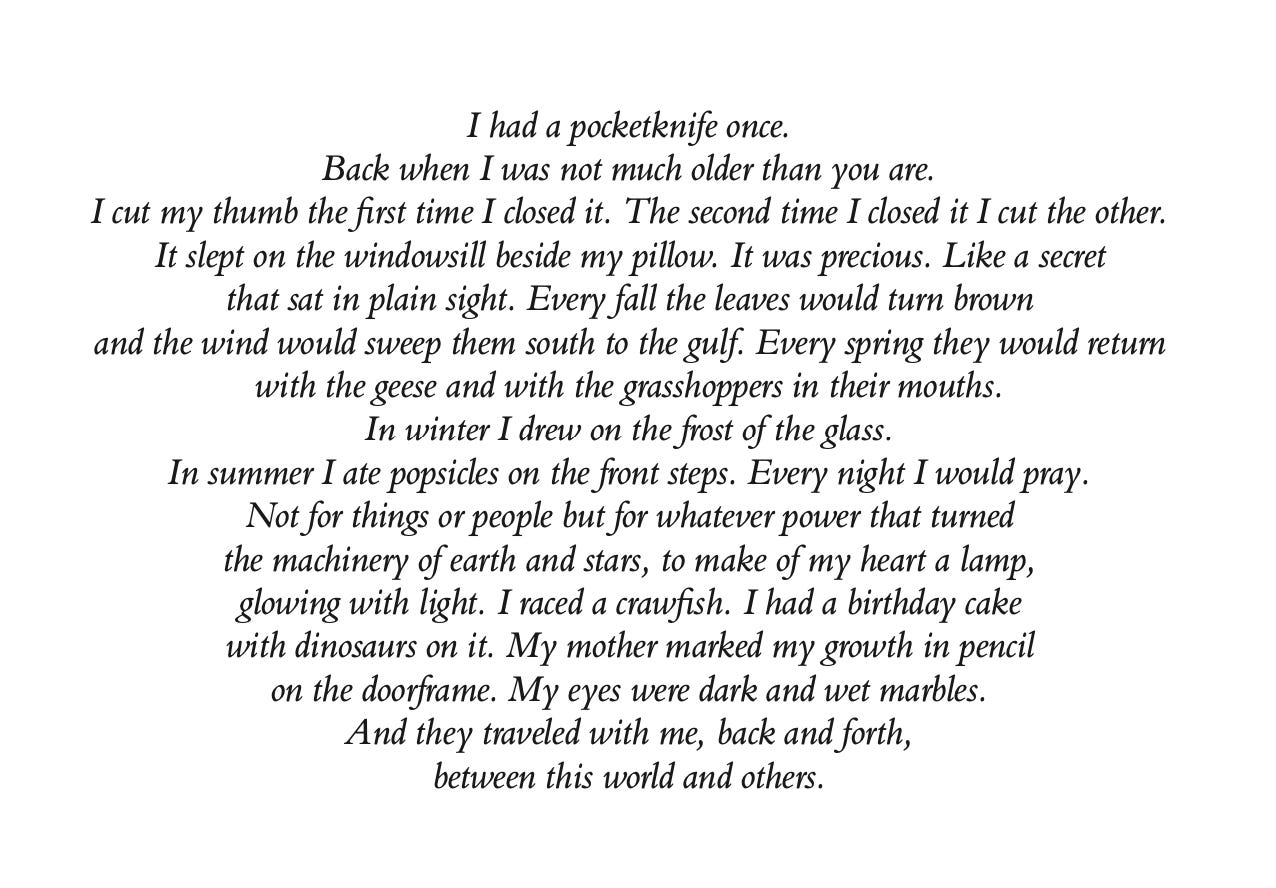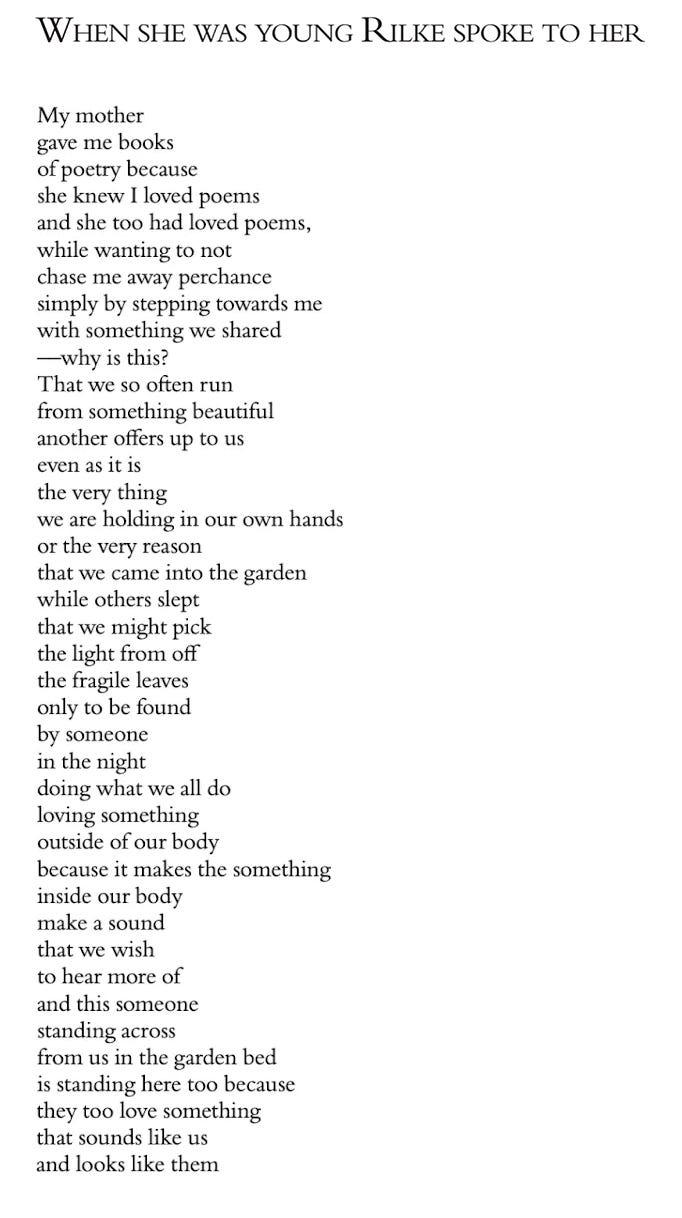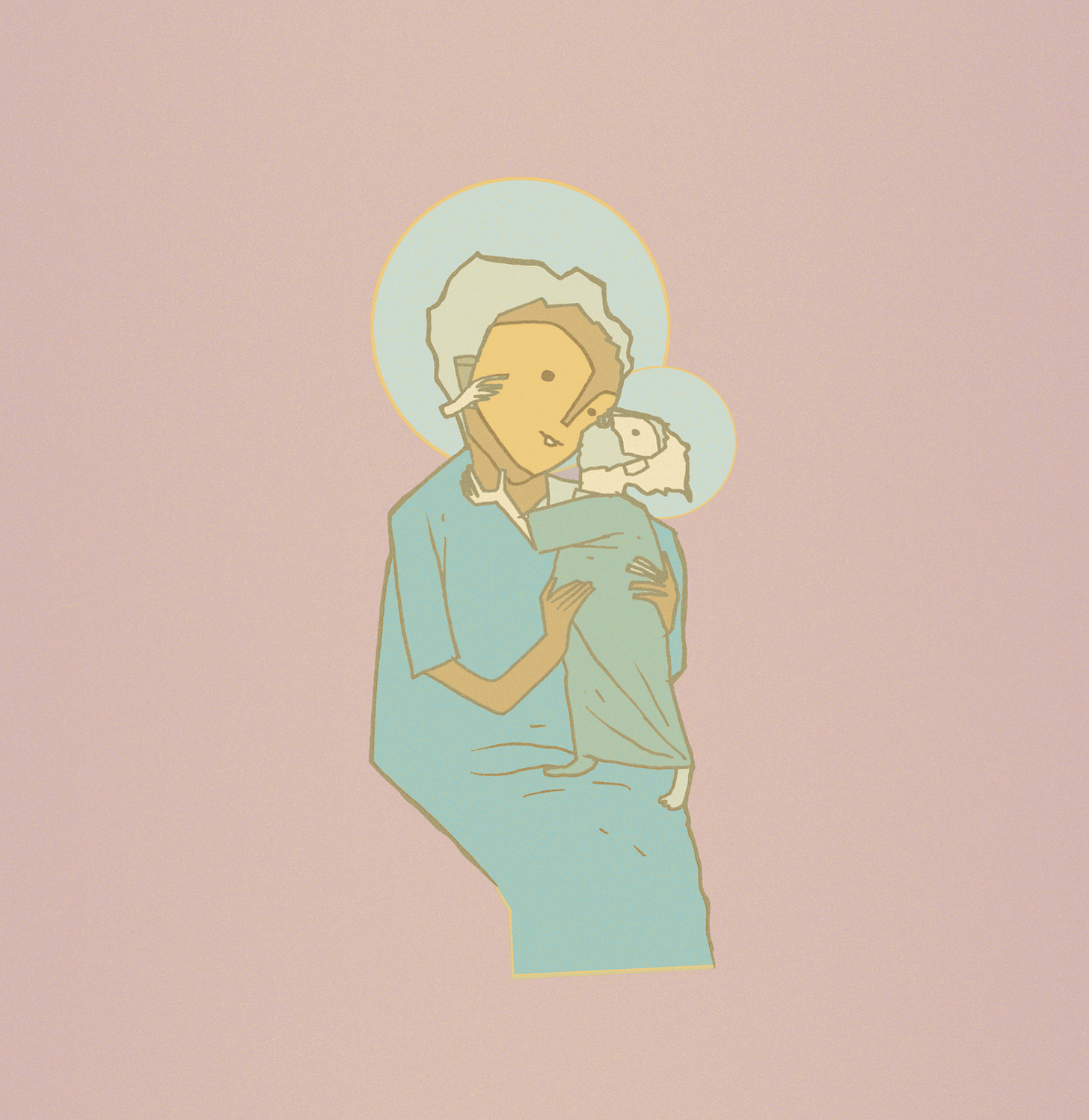Greetings and Salutations, Generation Soul Boom!
This week on the Soul Boom podcast, we’re thrilled to welcome the insightful Penn Badgley.
You might know Penn from his iconic roles in Gossip Girl or You, but as you’ll hear in his conversation with Rainn, there’s so much more to this talented actor. Penn is a deeply soulful individual, and though he and Rainn are quite different, they share some interesting commonalities. For starters, they’re both famous white actors with a double n at the end of their names. On a deeper level, however, they share a spiritual bond through the Bahá'í Faith.
While Rainn was raised in the Bahá'í Faith, Penn found it as an adult—a journey that adds richness to their shared perspective. Inspired by their connection, we thought this would be the perfect moment to spotlight another remarkable artist with ties to the Bahá'í experience: Anis Mojgani.
Unlike Rainn and Penn, Anis isn’t an actor. He’s a renowned poet and illustrator whose work has moved hearts and minds across the globe. His poetry bridges the intimate and the mythic, weaving together themes of identity, love, and the sacred.
For this week’s Dispatch, we’re honored to share a profile of Anis, written by one of Soul Boom’s executive producers. Anis is a truly unique creative voice, and we think his work will move you as much as it has us.
With love,
The Soul Boom Team
The Soulful Poetry of Anis Mojgani
By Samah Tokmachi
After months of texting, I’m finally on the phone with Anis Mojgani, the much-loved poet, writer, performer, illustrator, and all-around creative visionary. Born in New Orleans to a Persian father and a Black mother, Anis grew up in a household steeped in books and stories. His mother ran a children’s bookstore for much of his childhood, an experience that shaped his earliest relationship with language. “Books were always there,” he recalls. “But poetry wasn’t something I gravitated to until much later.”
The poetics of his childhood were etched into the rhythms of his surroundings: the lush and surreal atmosphere of New Orleans, the spiritual teachings of the Bahá’í Faith, and the confluence of his parents’ cultural lineages.
“New Orleans is a poem,” Anis says of the city’s kaleidoscopic beauty. “It’s a place where the world feels alive with story, and that sense of wonder fed me in ways I didn’t fully realize at the time.”
His parents also play a significant role in his work, though not always directly. His father came to the United States from Iran as a young man, part of a wave of Bahá'í students seeking education abroad. His mother, a native of New Orleans, discovered the Bahá'í Faith through a mutual friend. “They met at a Bahá'í party during Mardi Gras,” Anis tells me. “My mom doesn’t even remember meeting my dad that night, but he remembers her.”
Their union—an intersection of Persian, Black, and Southern cultures—was unusual for its time but profoundly shaped Anis’ worldview. Raised within the teachings of the Bahá'í Faith, he grew up steeped in ideals.
“I’m sometimes curious as to what my household would have been like if it were a Black-Iranian household not connected to the Bahá'í Faith. Just in that, I think there’s an aspect to growing up Bahá'í where these ideas and beliefs seem so apparent—how the world is and how the world should be. Things like equality of the sexes, the harmony of science and religion, all races, all cultures, all genders as one. And growing up inside of that, it doesn’t seem like a very complicated or hard pill to swallow, even though many folks or parts of the world might think differently. But I think there’s also an aspect where, within the Faith—and this is very, very important, and one of the things I hold close to my heart—unity doesn’t mean losing what we all come from. Unity means all the things we come from having space to share with one another at the same table.”
Even so, Anis admits that he felt somewhat removed from his cultural roots as a child. “My relationship to Persian culture and Black culture had to be found later, on my own,” he says. “Growing up, our household felt like a satellite, spinning its own orbit.”
As a teenager and young adult, he grappled with questions of belonging: What am I allowed to claim? Who am I allowed to be? “I was this random brown ethnic dude,” he says, reflecting on how he was often perceived. “But I didn’t always know what that meant, and I wasn’t sure if I was allowed to embody what I felt I was inside.”
The murder of George Floyd in 2020 brought these questions into sharper focus. Like many, Anis was crushed by the weight of the moment—the injustice, the grief, the anger. But as a Black man who does not present as visibly Black, the protests and their aftermath also forced him into a deep reckoning with his role in the fight against systemic racism. “I had to ask myself, what is the best way for me to speak to this, to act inside of this?” he recalls. “How do I honor the ways in which I am a part of this struggle while also recognizing the ways I might be perceived as apart from it?”
He describes the African diaspora in America as a “fractured, splintered” construct, one that forces many Black Americans to wrestle with questions of authenticity and belonging.
“I’m not the only person of color, I’m not the only person of African descent—I’m not the only Black human in America—wrestling with that question. Understanding that has definitely allowed me to more fully embrace the idea that, Oh, this is an ongoing journey. Maybe it’s something I’ll have figured out by the time I exit this mortal plane, but probably not. It’s ever-changing.”
Listening to Anis untangle the complexities of racial identity, I am struck by his candor and vulnerability. His reflections on the fluid nature of race and Blackness reveal that his journey and poetry are less about fitting into constructs than transcending them.
I wonder if these big questions of identity drew him to poetry. His introduction to the art form came almost by chance in high school, through an elective creative writing class that encouraged him to explore verse.
“It gave me the space to try writing my own poems,” he says. “I didn’t know what I was doing, but there was something there that I liked.”
This “something” would grow into an illustrious career. To date, Anis has served as the 10th Poet Laureate of Oregon and is a two-time individual champion of the National Poetry Slam and winner of the International World Cup Poetry Slam. He’s been awarded a multitude of residencies and fellowships. His work has appeared on HBO, National Public Radio, and in the pages of The New York Times—along with several other publications too numerous to mention here.
What did the beginning of that journey look like? I ask him about his first book, Over the Anvil We Stretch (2008), a lyrical exploration of memory, myth, and the undercurrents of life. “It’s rooted in a bit of darkness,” he says. “I wanted to explore how metaphorical language can transform real experiences—not as metaphors, but as alternate ways of naming reality. A river isn’t just like a snake; it is a snake.”
If Over the Anvil We Stretch moves from light to shadow, Anis’ second book, The Feather Room, reverses that journey. Written during a period of renewal, it charts a path from sorrow and heartbreak back to light and love. “It’s about rediscovering magic,” he says. “Where my first book leaned into heartbreak, this one emerged from a place of finding joy again.”
I tell Anis the two books (Over the Anvil and The Feather Room) form a perfect circle: between the two, heartbreak gives way to healing, and healing, in turn, leads back to heartbreak. “It’s the cyclical nature of life,” he reflects.
Childhood takes center stage in The Pocketknife Bible (2015), Anis’ fourth book, written from the perspective of his childhood self growing up in New Orleans. It’s an ode to the surreal world of childhood and the echoes it leaves in adulthood.

“I wanted the book to feel like a notebook you’d find from your younger self, but written in a different language,” he explains.
To achieve this, Anis did something extraordinary: he wrote poems, ran them through multiple translations using Google Translate, and then brought them back into English.

The process gave his words a fragmented, dreamlike quality, evoking the alien logic of childhood. The result is a deeply personal exploration of memory and myth-making connected across time.

I ask him about a line in The Pocketknife Bible: “Every night I would pray. Not for things or people but for whatever power that turned the machinery of earth and stars, to make of my heart a lamp, glowing with light.” He tells me that line specifically is a “reinterpretation or re-delivering both of bedtime prayers, but also very, very, very specifically a Bahá'í prayer that children recite.” When asked what that prayer and the others he recited as a child meant to him in retrospect he tells me “... so much of the prayers are speaking to things that are our interior universes. And it's also speaking to it in ways in which that is not the usual use of language. And definitely as a kid, I'm not necessarily, like, thinking about language. But from a young and impressionable age, there is a relationship, at least, knowing that in the world there existed space for conversation and questions that were centered around what is happening inside of the expansiveness of human beings, you know. What is happening in our heart, what is happening inside of our love, what is happening in our blood, what is happening inside of this thing called the spirit, this thing called the soul. There are things that I can't touch with my fingers. These prayers are speaking to those things.”
With In the Pockets of Small Gods (2018), Anis pivots from the interior space of childhood to the adult subject of grief—specifically the grief of losing his best friend Jeff to suicide in 2006, as well as the dissolution of his marriage in 2014.
For Anis, grief is not merely an emotion but a process—a way of moving through the world while honoring the space left by what has been lost. “Grief compounds on itself,” he reflects. “If we don’t engage with it, it can seep into other areas of our lives.”
If grief has a counterpoint, perhaps it is love. The Tigers, They Let Me (2023) places love at its heart, exploring its myriad forms and profound impact. “It’s about the unanswerable question,” Anis explains. “What are the ways love shapes us? How does it carve out space in us to give and receive more love?” The book delves into love’s transformative power, examining how it expands our capacity to connect, heal, and flourish.
In a collection so deeply rooted in love, it feels only natural that in it we find the the poet Rainer Maria Rilke invoked:

Like Rumi, Rilke has long been regarded as a spiritual cartographer. I bring this up to Anis and he readily agrees. “What I love about Rilke is his ability to speak clearly to what is unseen,” Anis says, a note of reverence in his voice. “He cuts through the bullshit. His words feel like they arrive at truths we often overlook.”
For Anis, love is not possession but transformation. He invokes Rilke’s idea that love is the protection of another’s solitude. “It’s such a beautiful truth,” he muses, “and something we don’t often talk about when we talk about love. So often, love becomes this selfish, self-centered thing—something we want to possess, to shape, to define in ways that serve us. But to truly love someone is to want for them to become their most whole self, even if that wholeness doesn’t include us.”

Anis’ reflections on poetry, lineage, and love feel like pieces of an unfinished map—one that doesn’t promise arrival but invites perpetual, eternal, infinite exploration in every direction.
“I believe we exist in all our times at once,” he tells me. “The child I was and the man I am are not separate—they exist together. And by sending healing to my younger self, I heal in the present.”

In encountering the poetry of Anis Mojgani—and joining him in his lush explorations of grief, of love, and of healing—we may very well find ourselves embarking on our own inner journey into those lands.

Anis Mojgani is a poet, performer, writer, and artist known for creating work that bridges the intimate and the mythic. As Oregon’s 10th Poet Laureate and a two-time National Poetry Slam Champion, his poetry invites readers and audiences to explore themes of belonging, identity, the Divine and the human spirit. In The Tigers, They Let Me and his other published works, Mojgani combines lyrical storytelling with vivid imagery to craft a unique vision of connection and resilience. Through his performances, books, and collaborations, Mojgani inspires others to embrace their inner worlds while working toward a more inclusive and compassionate society. Find him on social media: @thepianofarm.





